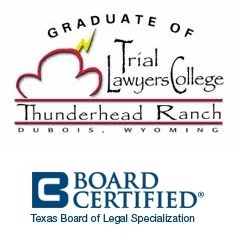Montgomery County Property Crimes Defense
Many individuals, especially young adults, do not realize the seriousness of their actions until they are arrested and charged with property crimes in Conroe, Texas. Such individuals could face jail or prison sentences in addition to large fines for crimes such as graffiti, criminal mischief, or vandalism.
If you or a loved one has been charged with a criminal property crime, it is important to hire experienced legal counsel to avoid having a criminal conviction on your record. The prosecutor has the burden to prove beyond a reasonable doubt that you committed every element of the property offense. If, during trial, your attorney is able to raise a reasonable doubt in the minds of the jury, you would be found not guilty. If there is evidence that you committed the crime, your attorney may still be able to persuade the prosecutor to reduce the charge or agree to a pathway to having the case dismissed.
Therefore, it is critical to hire an experienced criminal defense attorney in Conroe who will work hard to help you obtain the best outcome for your case.
Conroe Property Crimes Lawyer
If you have been accused of committing a property offense in Conroe, Houston, Atascocita, Baytown, Bellaire, Clear Lake, Channelview, Cypress, Deer Park, Friendswood, Galena Park, Humble, Jersey Village, Katy, La Porte, League City, Missouri City, Pasadena, Pearland, Richmond, South Houston, Spring, Sugar Land, Texas City, Tomball, Webster, The Woodlands, and other communities in Harris County, Fort Bend County, and Montgomery County, contact James G. Sullivan and Associates.
Attorney James Sullivan is very knowledgeable in all of Texas’ property laws and is experienced in defending individuals accused of breaking property laws. He will work hard to fight the allegations against you. Call James G. Sullivan and Associates for a free initial consultation at (281) 546-6428 about your property crime charges.
Montgomery County Property Crimes and Laws
In Texas, some commonly charged property crimes include burglary of a habitation, criminal mischief, criminal trespass, arson, and graffiti.
According to Texas Penal Code Sec. 30.02, an individual can be charged with burglary if they enter without the owner’s consent:
- A habitation or a building with the intent to commit a felony, theft or assault;
- A habitation or a building and remain there with the intent to commit a felony, theft or assault; or
- A habitation or a building and commit or attempt to commit a felony, theft or assault.
These offenses are usually punishable as a state jail felony, felony of the second degree or a felony of the first degree.
According to Texas Penal Code Sec. 30.04, an individual can be charged with burglary of a vehicle if they break into or enter a vehicle without the owner’s consent and with the intent to commit a felony or theft. This offense is usually punishable as a Class A misdemeanor or a state jail felony.
According to Texas Penal Code Sec. 28.03, an individual can be charged with criminal mischief if they intentionally or knowingly commit any of the following acts without the owner’s consent:
- Damages or destroys another person’s property;
- Tampers with another person’s property and causes loss or substantial inconvenience; or
- Makes markings, including inscriptions, slogans, drawings, or paintings on another person’s property.
This offense is also commonly referred to as vandalism. Depending on the amount of loss resulting from the damage, an individual can be charged with a Class C, B or A misdemeanor, a state jail felony, or a felony of the third, second or first degree.
According to Texas Penal Code Sec. 30.05, an individual can be charged with criminal trespass if they enter or remain on another person’s property without the owner’s consent and the accused individual had notice the entry was forbidden or they received notice to leave the premises, but did not. Criminal trespass can occur on residential land, agricultural land, a recreational vehicle park, a building, an aircraft, or any other vehicle. This offense is usually punishable as a Class C, B, or A misdemeanor.
According to Texas Penal Code Sec. 28.02, an individual can be charged with arson under if they intentionally or recklessly destroy or damage property through the use of fire or explosion. An individual can be charged with a state jail felony, felony of the third degree, felony of the second degree, or a felony of the first degree, depending on where the arson occurred and depending if death or injury resulted to any person as a result of the arson.
According to Texas Penal Code Sec. 28.08, an individual can be charged with graffiti if they intentionally or knowingly makes markings, including inscriptions, slogans, drawings, or paintings on another person’s property with:
- Paint;
- A permanent marker; or
- An etching or engraving device.
An individual can be charged with a Class B or A misdemeanor, state jail felony, or felony of the third, second, or first degree conviction, depending on the amount of property damage and where the graffiti was committed.
Property Crime Mental States in Conroe
Property crimes in Conroe generally require the alleged offender to have some element of intent or knowledge they were committing the offense. In order to convict the alleged offender at trial, the prosecutor must prove beyond a reasonable doubt the alleged offender had the intent to commit the crime, knowledge they were committing the offense, or acted recklessly when committing the crime. These elements are subjective and may be difficult for the prosecutor to prove, as they are not established by hard evidence and are different for every person.
According to Texas Penal Code Sec. 6.03, these mental states defined as follows:
Intentionally – An individual acts intentionally, or with intent, if they commit a crime and they have the conscious objective or desire to engage in the conduct or cause the result of the conduct.
Knowingly – An individual acts knowingly, or with knowledge, if they commit a crime and are aware their conduct is reasonably certain to cause the result of their conduct.
Recklessly – An individual acts recklessly, or is reckless, when they commit a crime if they are aware of their conduct or the likely result of the conduct, but they consciously disregard a substantial and unjustifiable risk the result will occur.
Punishment for Property Offenses in Conroe
Chapter 12 of the Texas Penal Code lists the punishment for property crimes. However, the punishment range an offender faces depends on different factors such as the value of the damage, where the offense occurred, whether the accused has any previous criminal history, and whether a weapon was used during the commission of the crime.
A conviction for a Class C misdemeanor property crime is punishable by a fine up to $500.
A conviction for a Class B misdemeanor property crime is punishable by a jail sentence up to 180 days and or a fine up to $2,000.
A conviction for a Class A misdemeanor property crime is punishable by a jail sentence up to one year and or a fine up to $4,000.
A conviction for a state jail felony property crime is punishable by a jail sentence ranging from 180 days to two years and a fine up to $10,000.
A conviction for a felony of the third degree property crime is punishable by a prison sentence ranging from two to ten years and a fine up to $10,000.
A conviction for a felony of the second degree property crime is punishable by a prison sentence ranging from two to 20 years and a fine up to $10,000.
A conviction for a felony of the first degree property crime is punishable by a prison sentence ranging from five to 99 years or life imprisonment and a fine up to $10,000.
Defenses to Property Crimes in Conroe
Chapter 8 of the Texas Penal Code lists the defenses that occasionally may be available to individuals charged with property crimes in Houston. To determine whether any defense applies in your specific situation, it is important to consult with an experienced criminal defense attorney.
Duress – An accused may be able to use this defense if they were threatened by another person that they or a third party faced imminent death or serious bodily injury if they did not commit the offense.
Justification – An accused may be able to use this defense if, during an emergency situation, they committed an act that otherwise would be a criminal offense in order to prevent imminent harm.
Mistake of Fact – An accused may be able to use this defense if they reasonably believed they had the owner’s permission to enter or use the owner’s property.
Conroe Property Crime Resources
Chapter 28 of the Texas Penal Code lists and defines arson, criminal mischief and other property damage or destruction offenses and the punishment for committing such offenses.
Chapter 30 of the Texas Penal Code lists and defines burglary and criminal trespass offenses and the punishment for committing such crimes.
James G. Sullivan and Associates | Conroe Property Crime Attorney
Contact James G. Sullivan today at (281) 546-6428 for a free initial consultation about your alleged property crime in Harris County, Montgomery County, or Fort Bend County, Texas. James Sullivan is an experienced Conroe criminal defense attorney who will work hard to help you obtain the best outcome for your particular case.


